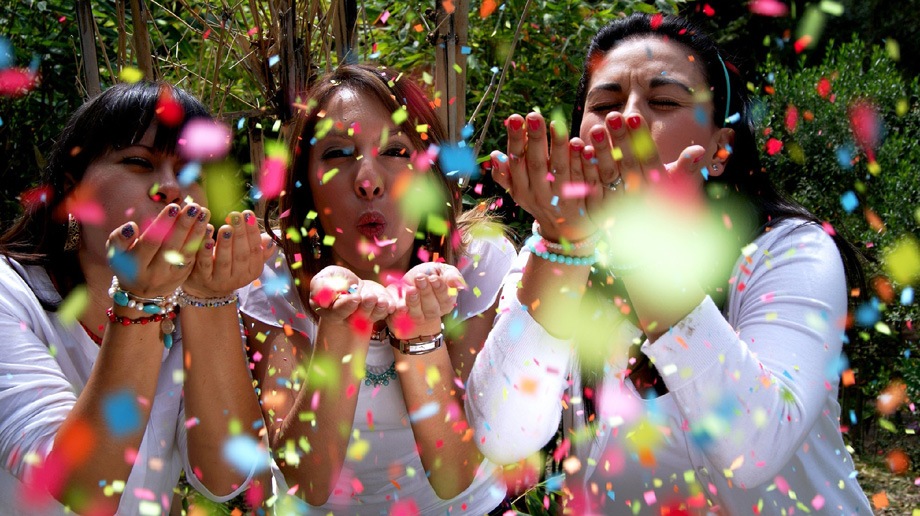Happiness is often treated as this single, fixed goal, towards which everyone is moving, but what if it is a vastly more individualistic, internal struggle? What if there is more than one kind of happiness out there?
What is Happiness?
The pursuit of happiness has always been a big thing in all cultures, even the more typically stoic ones. However, the definitions are not always the same. Modern western mainstream ideas of happiness centre around connectedness and materialism, unsurprising in a highly consumerist society.
The older, more satisfying idea of happiness more prevalent in eastern cultures and philosophies is one more centred on contentment and purpose, with the ideas always focusing on achieving the kind of lifestyle and overweening purpose that allows you to happily and contented sit back and let life flow without worrying about whether or not you’re happy.
True happiness in many senses is just comfortable, meaningful distraction. As long as you’re not spending long hours worrying and thinking about random facets of your life, and as long as you’re filling your time with meaningful pursuits, like a career that matters to you, or relationships that lead to lasting, deep connections.
By that token, the opposite of happiness is not actually depression or misery, but the boredom that comes before full-blown melancholy. If you are bored a lot, you are not focused; you are not spending your time doing things that matter to you. In short, you are wasting your life, and that is one of the worst sources of misery.
At its core, happiness can be boiled down to a simple sense of direction, control and mentally relaxed, unstressed work, but it’s not one size fits all.
Different Types of Happiness
While it is very easy to say this is the only definition of happiness and everyone should be working towards it, sadly, reality doesn’t work that way. Life does not work that way. We grow up and experience different things, and all individually end up with our sets of needs and expectations of what we want from happiness and life in general.

A good example of these expectations is the way they affect relationships. Growing up, we are exposed repeatedly to an almost insanely idealised concept of love and relationships. The phrase ‘happily ever after’ is forever associated with fairy tales and our pre-teens, and then you’ve got romances like Twilight and the endless insidious influence of pop music, all centred around the sanctity, passion and importance of endless ongoing romance.
Which leads to something of a disappointment when you are in your mid-twenties (or younger), and you discover that relationships are not always what they’re cracked up to be, that passion fades, and love can simply fade. Childhood does not exactly prepare us for that grim reality or the ever-changing nature of life in general.
In this way, early experiences of different elements can pollute and change our ideas of what life and happiness should be. Expectations and ideas life this lead to a million different definition of happiness, meaning that every individual out there has a lifestyle, role or idea in mind when it comes to achieving happiness. Where do they come from? What are they? Are they achievable?
Someone You Admire
Probably the commonest and easiest to understand, striving to live life like someone you admire is the most logical approach when it comes to a world saturated by social media influencers and lifestyle gurus, like Kim K and Tim Ferriss.
Social media is endlessly full of new amazing trends in health, lifestyle, employment and all kinds of other movements, all bustling for your attention. Madonna proudly declared she was a material girl in 1984, but never before have you been able to fully encase your world and social sphere in a complete bubble of materialism in the way you can now with social media.
While all intellectual ideas of materialism slate it as being shallow and ultimately meaningless, that does not mean that if it makes you happy, it is invalid.
Seeing the lifestyle of someone you admire and aiming to imitate it can be a valid way to achieve a satisfying and happy lifestyle, but don’t forget that at the end of the day, you’re copying something that’s made someone else happy, and isn’t necessarily perfect for you.
It does not have to be some distant figure out in the social media sphere either. If you see a friend with a lifestyle and happiness level that you envy, it can make sense to strive for something similar too.
What you have to remember, however, is that people who have lifestyles that seem enviable or worth copying, are generally successful, and one of the big features of successful people is that they are great at acting successful. That means running a constant highlight reel that shows their life at its utmost best. This quickly begins to seem unattainable.
Recreating the Happiest Time of Your Life
Another common path to happiness is when people strive to recreate the happiest times of their lives. We’ve all seen older guys in rock cover bands, and we’ve all lusted for a certain carefree couple of years that have gone previously, but at the end of the day, you’ve got to remember a couple of things.
Looking back at the past with rose-tinted lenses is not going to lead to accurate ideas of what it was actually like. I can look back and idealise even the worst parts of my life because as humans, we rarely remember just how bad the bad stuff was, but the good stuff in our memory just keeps getting better.
That means that no matter how good the time you are striving for seems in your memory, it is always going to be, to some degree, a fantasy, and therefore unattainable. There is a deeper problem with it though.
If you are attempting to return to the so-called happiest time of your life, you are going to be missing out on whatever period of your life you’re currently in. There are joys and contentment to be found in your life no matter how old or young you are, and spending all your time reminiscing for the good old days is just a fast path to ignoring the here and now (which could actually be massively superior!).
The Wrong Path
What it all comes down to is avoiding the wrong path when it comes to happiness. You have to identify what it actually is you are striving towards, and work out whether that’s even right for you. If you have sunk literal years of your life into an idea of happiness and purpose and received little to no payback, then you need to learn to cut your losses and move on.
It might hurt a bit to turn your back to an idea of happiness that you’ve nursed for a long time, which you believed in and worked towards, but until you do, you’ll just be caught in the same cycle of working hard and being disappointed by an unsatisfying and unattainable ideal.
What is True Happiness?
That is easy, true happiness is what makes you truly happy! That means whatever ticks the boxes of habitual self-development, solid relationships and real purpose, without feeling the need to constantly strain yourself, worry or be anxious about ticking those boxes.

That might not sound all that easy to integrate into your life, but most of us are closer than we realise. Maybe we are spreading ourselves too thin over too many goals, maybe we are letting a crucial part of our life fall by the wayside, or maybe we are just bored and lacking purpose. All of those things are quintessentially straightforward to fix, and once you re-evaluate and change what you need to change, you will start feeling happier.
That’s the simple nature of being proactive really. Once you have acknowledged a problem and put measures in place to deal with it, you will automatically feel happier and more in control, which is just the nature of life.
Tips and Tricks
One of the single best things you can do while trying to stumble onto the realisation of the ideal happiness for you is meditation. The simple act of sitting back and letting all your thoughts drift away, allowing you to simply be, can foster a clarity and keenness of mind that enables you to truly see the elements of life that really appeal to you, and to isolate those that are a detriment.
It is not hard either. Just twenty minutes in the morning, just after the shower, sat cross-legged on the floor somewhere, will have you feeling much better and calmer in general, as well as leading you to some powerful conclusions and ideas through sheer clarity, and getting rid of all the background noise.
As well as meditation, there are ways out there of tracking happiness and keeping on top of your emotions, one of which is the app, Analyze.Life. This is perfect for making sure you are moving in the right direction, towards your ideal definition of happiness.